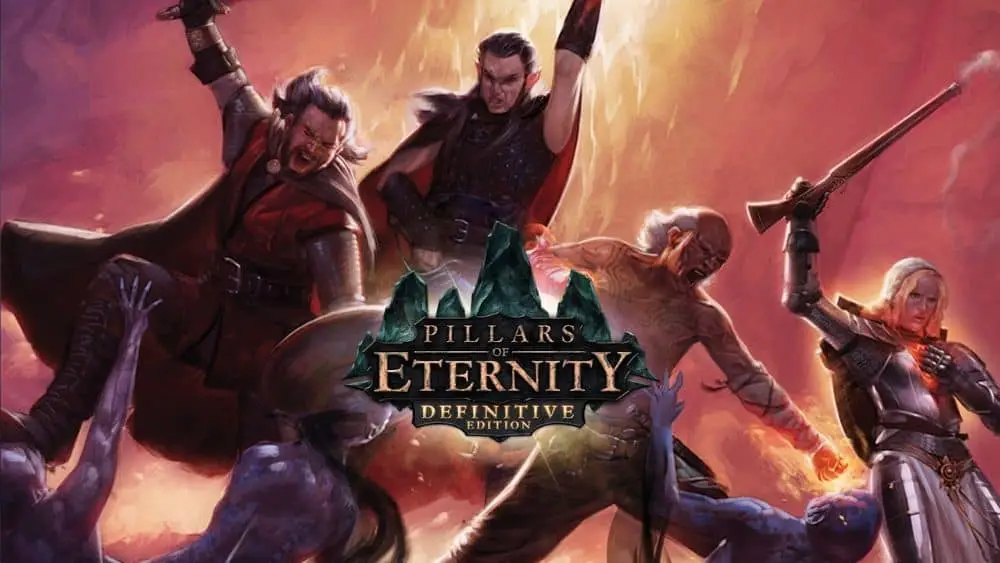With releases such as Fallout: New Vegas and KOTOR II, there’s little doubt that Obsidian Entertainment has a strong understanding of RPG as a genre. In 2012 the company launched a Kickstarter for the spiritual successor to the Icewind Dale series; they called it Pillars of Eternity.
The Kickstarter managed to raise over 4 million USD, breaking the record at the time for the highest-funded video game, somehow indicating gamers’ demand for games like Pillars of Eternity. Upon release in 2015, the game was met with praise from both critics and fans. Many saw it as an old-school RPG with all the nostalgic aspects admired by veterans but without the mechanics that would be considered tedious by today’s standards.
Related Reading:
- 17 Role-Playing Games Like Suikoden
- 15 Games Like Divinity Original Sin 2
- 7 Top Games Like The Elder Scrolls III: Morrowind
- 7 Games Like Star Wars: Knights of the Old Republic
Pillars of Eternity is an Isometric RPG that features party-based pausable combat. The game retains its feel from older titles likes Baldur’s Gate and Icewind Dale, featuring 3-D models of characters over beautiful 2-D prerendered backgrounds, adding to the dark mystic aesthetic the game goes for. Players begin the game by creating a character and all the various decisions we’re familiar with in any RPG, assigning stats and class to the character except for the character’s appearance. In true RPG fashion, these decisions come into play not only as what your character can accomplish in the world but also as skill checks in conversations, sometimes allowing players to bypass entire battles needlessly using resources. Such skill checks don’t accomplish much in most RPGs. Avoiding conflicts equates to not levelling up your combat skill; however, in Pillars of Eternity, no XP for combat is rewarded, making stealth builds a viable option, at least for me for the first time.
The game was successful enough to warrant a sequel that was just as successful, if not more, so let’s look at other similar old-school RPGs available today.
1. The Age of Decadence
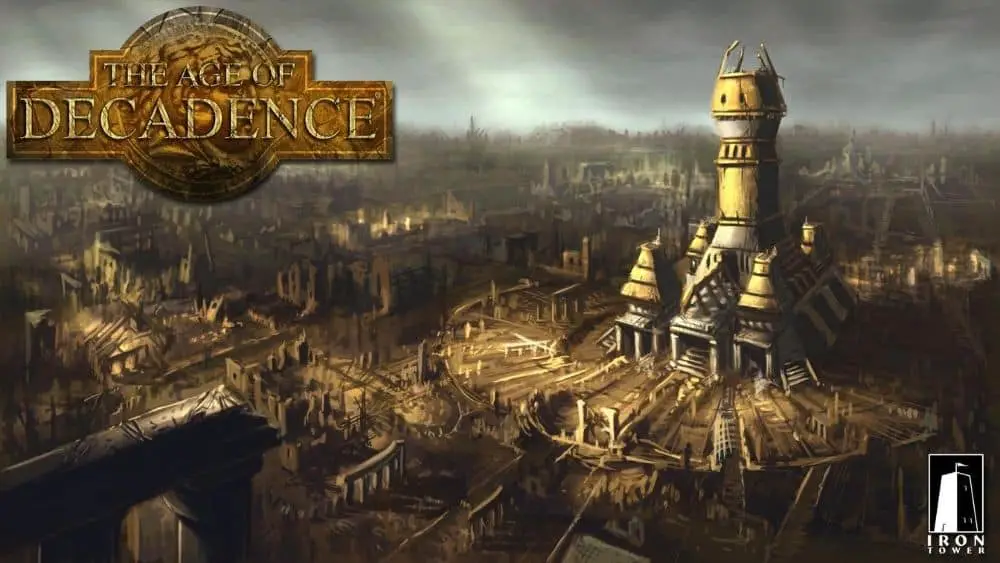
The Age of Decadence was developed by Iron Tower Studio and released in 2015. The game has a unique setting, to say the least; it features a post-apocalyptic world after the Roman era. The game was designed with older RPGs in mind; like Pillars of Eternity, the game heavily emphasises the choices players make and their consequences, which sometimes are not foreseeable. I honestly love these kinds of RPGs instead of more modern “RPGs” because this is a crucial factor in enjoying playing the role of the character you have made, making decisions, and having those decisions reflected in the world.
Like all RPGs, the game begins with the player selecting various stats for the players; in this case, players can choose from eight backgrounds and professions; these choices will affect the base stats for your players. Again, the game’s options are diverse, allowing the player to play as a noble knight or a crafty stealthy thief. Speaking of crafty, the game also features a crafting mechanic allowing players, if they have the skill, to melt old items and forge new weapons from them, a neat idea that is rarely implemented in any RPG.
This title is very well priced and available on steam. There are hours of fun to be had with this game; I suggest giving it a go; if you like Pillars of Eternity, you’ll like this one too.
2. Tyranny
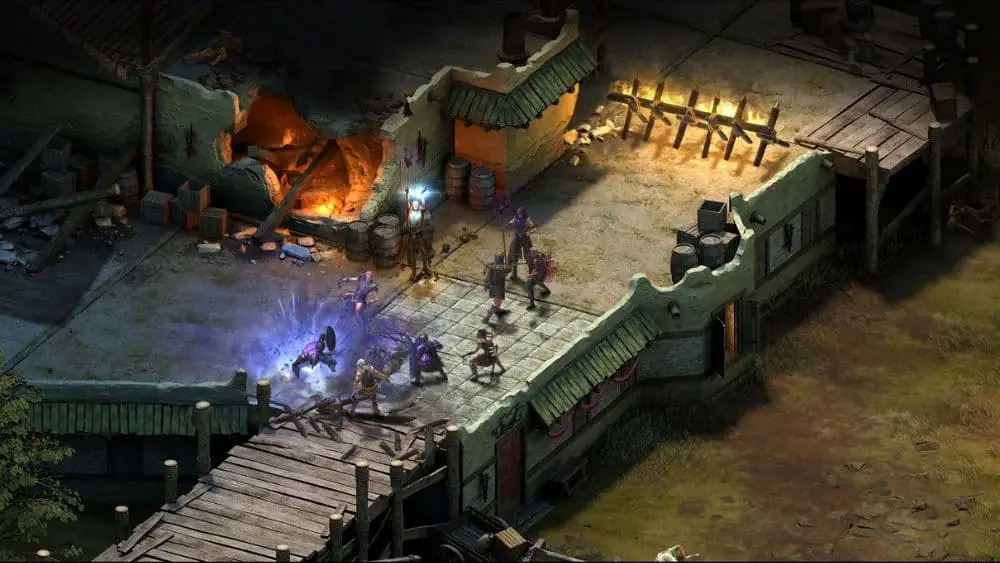
This game shares the same developer as Pillar of Eternity; not only that but Tyranny was meant as an improvement to the choice system of PoE. Featuring the same engine, the game begins at a rather strange spot in the timeline with the evil overlord already have won. The player assumes the role of one of the high-ranking members in the overlord Kyros’ council. As someone who holds that position of power, the player’s goal is to visit various places in the world to restore peace and bring order after the overlord’s victory.
The game begins with character creation in a very unique and innovative way. First, the player decides how Kyros’ conquest occurred; the decisions made here reflect the final character created. These decisions also reflect how NPCs behave with the player and the overall condition of the world.
The rest of the gameplay is similar to PoE, not that it needed a change. It’s perfect in every way Isometric RPG can be.
3. Star Wars: Knights Of the Old Republic
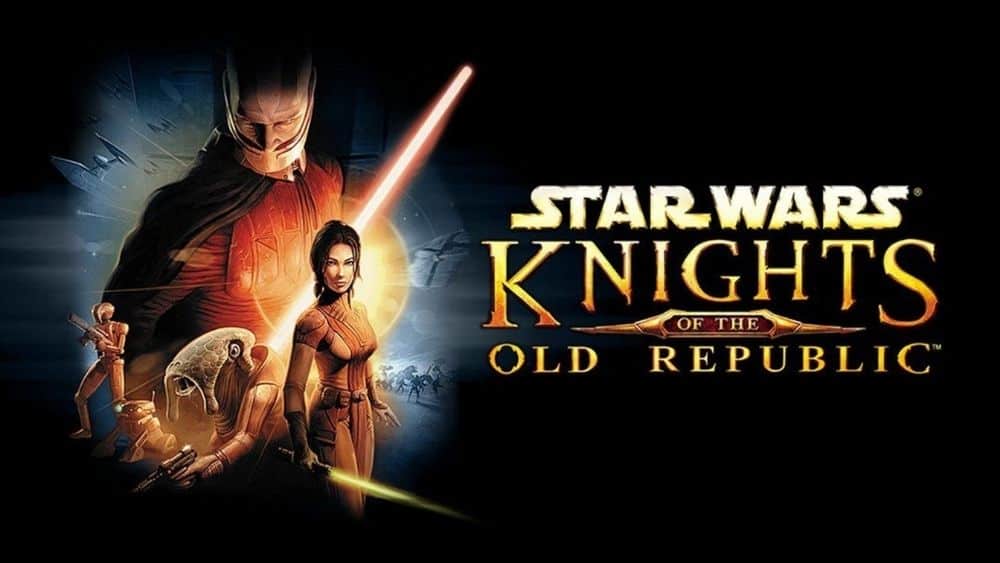
While they are not Isometric KOTOR I and II are one of the best RPGs ever made. They share similarities with PoE with their choice-based mechanics and how it affects the player and the world.
I have talked at great lengths before about my appreciation for the game’s subtle way of making the player choose which side they will join, which in case you didn’t know, is a pivotal point in any Star Wars story. Instead of giving the player a button to choose which side they’d like to join at the beginning of the game. Instead, the game decides it by gauging the decisions made by the player, affecting both the world and the player’s path, which is reflected in their appearance—the more “animalistic” the features, the more gravitation towards the dark side.
KOTOR has one of the best stories to experience in an RPG, and while it’s not isometric, it still features party-based combat with DnD rules (as far as my limited understanding about DnD is).
4. Planescape: Torment
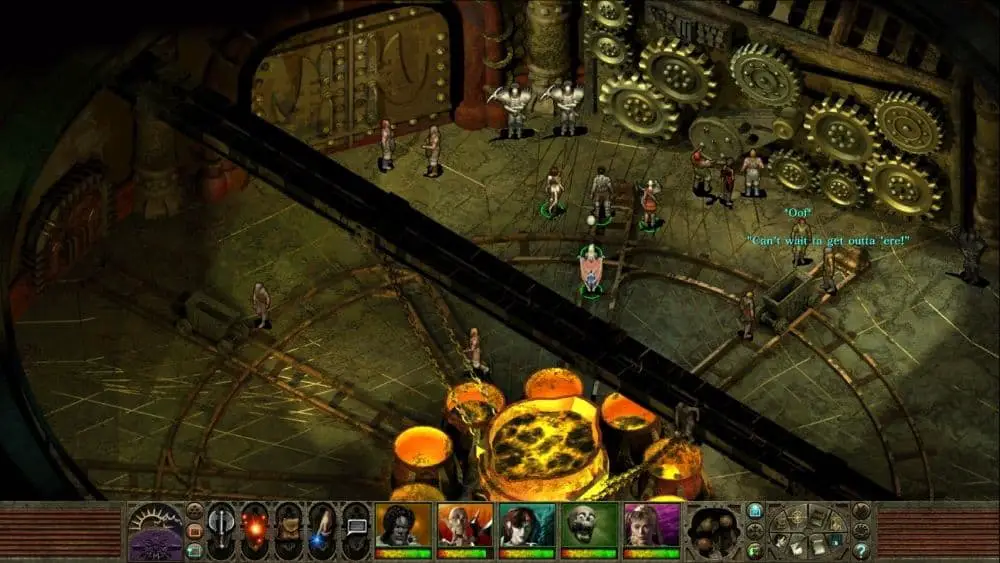
Released in 1999, developed by Black Isle Studios, Planescape: Torment was critically acclaimed as one of the best RPGs. That statement still holds today. In fact, it wouldn’t surprise me if PoE was developed with Planescape in mind as a blueprint. Unfortunately, however, the game was ahead of its time and didn’t see commercial success until later, when it caught everyone’s attention and became a cult classic.
Players assume control of the nameless one who possesses the ability of immortality at the cost of amnesia upon death. A neat way to explain the respawn mechanic of video games. The game has a captivating story as the nameless one journeys onto various planes in search of his forgotten past and to find out what made him immortal in the first place.
What follows is an exciting tale that also considers players’ actions throughout the game. Sometimes NPCs affected by your actions might want to join your party; sometimes, your efforts might lead them to do the exact opposite. An enhanced edition released in 2017 featured bug fixes and optimisations to allow the game to run on newer hardware, and it’s worth a try if you enjoyed PoE.
5. Arcanum: Of Steamworks and Magick Obscura
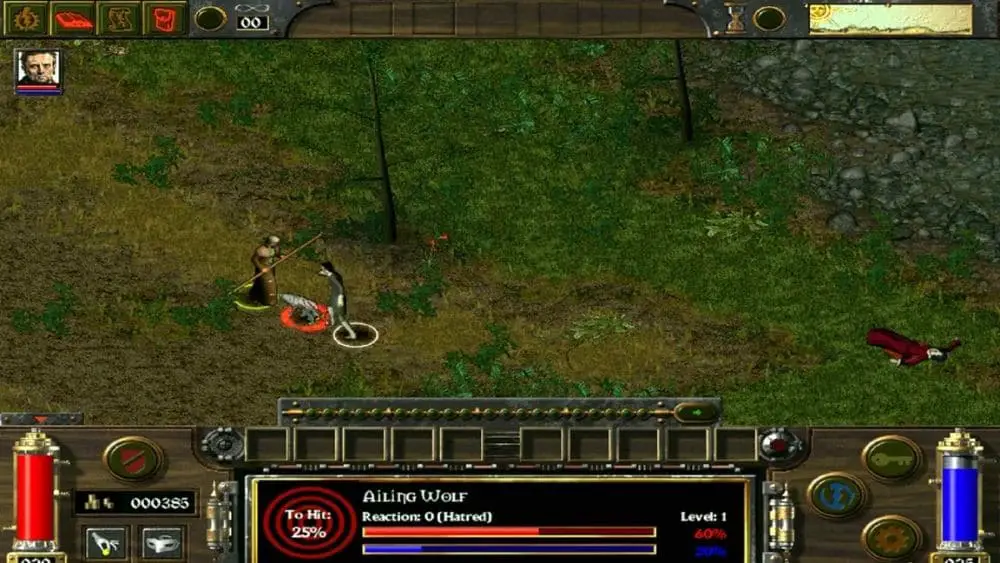
Here’s a title forgotten with time, released in 2001 to favourable reviews and sales Arcanum was developed by Troika Games and is an isometric RPG. At the time, the game was pretty popular, but sadly no one talks about it anymore.
The gameplay loop is similar to any RPG of the time; however, instead of going to dungeons for loot, players could also assist various NPCs with tasks. The ability to do these tasks depended on the character’s stats, of course, and allowed the player to get their hands on special items or gather more followers. It’s similar to PoE with the interactions with NPCs and choice-based gameplay but also offering players multiple methods to complete objectives, one of the features that granted high praise to Arcanum. It was also one of the first titles to introduce a real-time or turn-based combat choice to the players and even a hybrid mix of both as faster turn-based combat.
The game features a great amount of replayability with its core mechanics and in the form of Modules allowing for custom maps to be added to the base game. These features benefit the game’s longevity, allowing modders to make something of their own for other gamers to enjoy.
6. Dragon Age: Origins
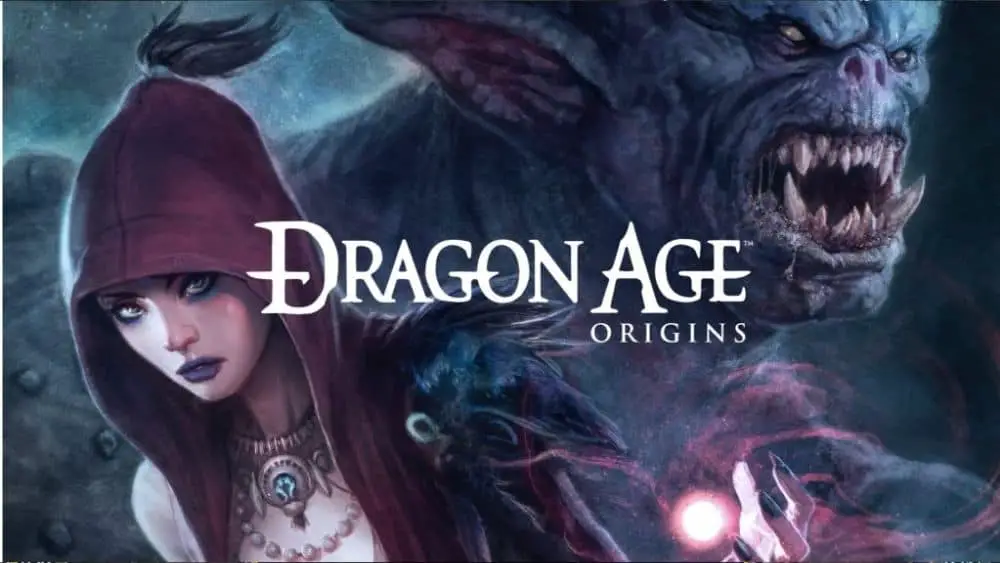
If you’ve already finished PoE, I don’t see much reason to recommend this title to you; however, if you found the game to be a bit too difficult and are looking to get into the hardcore RPG genre, then this title is perfect for you. Dragon Age is geared more towards the newbie audience, and while I am not saying it’s not for veterans, I’d say they wouldn’t feel as satisfied when compared to PoE, but that’s a personal opinion so take it with a grain of salt.
DA features a third-person perspective which players can switch to an isometric view for a clearer picture of the battlefield. It’s set in the typical fantasy land that RPGs tend to cling to but still has a fascinating world. The game emphasises the party aspect of the RPG, and your companions can even die (permanently) if you’re not careful. Furthermore, companions react to the decisions made by you through an “approval system” mechanic; if their opinion for the player falls too low, they may leave the party or even attack the player.
7. Baldur’s Gate
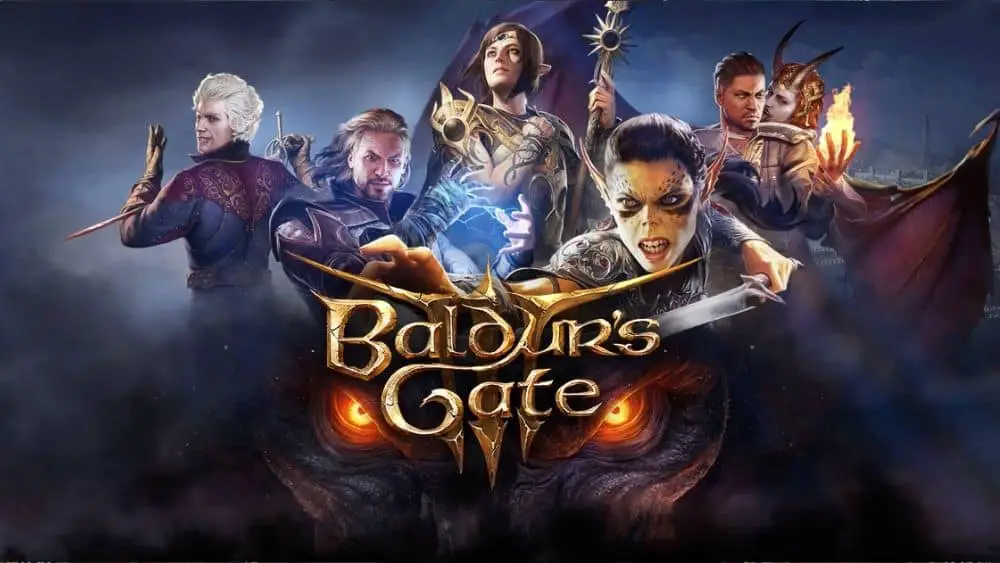
I saved the most obvious for the last. Baldur’s Gate was released in 1998, and currently, there’s an ongoing beta for the third title. On release, the game was an instant hit winning many awards and saw huge commercial success. Comparisons are not hard to draw with PoE since Obsidian already wanted to replicate the unique feeling that games like Baldur’s Gate brought out.
There’s not much to talk about gameplay mechanics since most RPG’s are modestly inspired by Baldur’s Gate. Jumping into this game, everything seems familiar for isometric RPG players; it’s because this game can be called the genre-defining title.
The game saw enhanced editions much like Planescape, so it’s always viable to play this game on newer hardware, even mobile phones, but I wouldn’t advise newbies to be this their first attempt at the genre; it’s one of the more hardcore titles.
RPG is a varied genre, unlike action or stealth, which is mainly limited to either first-person or third-person and rarely comes in a different package RPGs exist in an array of sub-genres. Isometric is perhaps the most tried and tested sub-genre for RPGs, with games like Fallout and the previously mentioned Baldur’s Gate defining the genre. While the industry leans more towards games like Call of Duty these days because they translate to money, I’d argue a good game of any genre can make money if it’s competent enough. PoE proved precisely that when it became a record holder for the most-funded game on Kickstarter, and with games like Baldur’s Gate III coming soon, the future looks bright for fans of the genre.
Want to find out similar suggestions for other games as well? Visit our Games Like hub.

